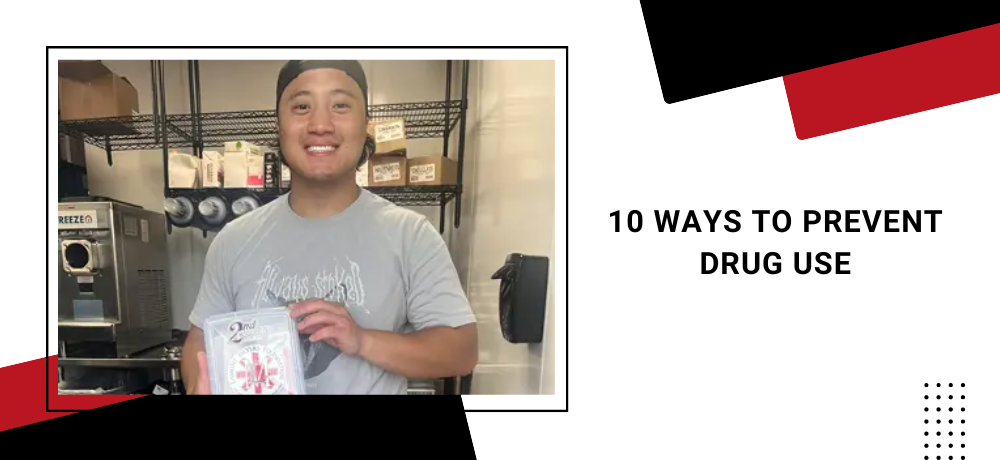
10 Ways To Prevent Drug Use
- Lamont Meyers Foundation
Drug addiction is a pervasive issue that affects individuals and communities worldwide, leading to devastating consequences for both physical and mental health. At Lamont Meyers Foundation, we understand the urgency of addressing this pressing concern and are committed to offering solutions that empower individuals to lead healthy, drug-free lives. In this comprehensive guide, we outline ten effective strategies to prevent drug use and combat the cycle of addiction.
1. Education and Awareness
The first step in preventing drug use is education. By raising awareness about the risks and consequences of drug addiction, we can equip individuals with the knowledge they need to make informed decisions. Educational initiatives should target individuals of all ages, from adolescents to adults, and cover a range of topics, including the dangers of substance abuse, the impact on physical and mental health, and available resources for support and treatment.
2. Encouraging Healthy Coping Mechanisms
Many individuals turn to drugs as a way to cope with stress, anxiety, or other emotional challenges. By promoting healthy coping mechanisms, such as exercise, mindfulness, and social support networks, we can provide alternative ways for individuals to manage their emotions and navigate difficult situations without resorting to substance abuse.
3. Building Resilience
Resilience is the ability to bounce back from adversity and overcome life's challenges without turning to drugs or other harmful behaviors. By fostering resilience through supportive relationships, positive role models, and opportunities for personal growth, we can empower individuals to face life's ups and downs with strength and determination.
4. Providing Access to Mental Health Services
Many individuals struggling with drug addiction also have underlying mental health issues, such as depression, anxiety, or trauma. By ensuring access to quality mental health services, including therapy, counseling, and psychiatric care, we can address the root causes of addiction and provide comprehensive support for recovery and healing.
5. Implementing Drug-Free Workplace Policies
Workplaces play a crucial role in preventing drug use by establishing clear policies and procedures that promote a drug-free environment. Employers can implement drug testing programs, provide employee assistance programs, and offer education and training on the risks of substance abuse to create a culture of accountability and support.
6. Strengthening Community Connections
Strong communities are essential for preventing drug use and supporting recovery. By fostering connections between neighbors, schools, businesses, and community organizations, we can create a supportive environment where individuals feel valued, connected, and empowered to make healthy choices.
7. Engaging Parents and Caregivers
Parents and caregivers play a critical role in shaping their children's attitudes and behaviors toward drugs. By providing parents with resources, education, and support, we can empower them to have open and honest conversations with their children about the risks of substance abuse and the importance of making healthy choices.
8. Implementing Early Intervention Programs
Early intervention is key to preventing drug use before it escalates into addiction. By identifying risk factors and warning signs early on, we can intervene with targeted prevention programs that address the unique needs of individuals and communities.
9. Advocating for Policy Change
Policy change at the local, state and national levels is essential for addressing the systemic factors that contribute to drug addiction, such as poverty, inequality, and lack of access to healthcare. By advocating for evidence-based policies and funding initiatives that support prevention, treatment, and recovery efforts, we can create lasting change and improve outcomes for individuals and communities affected by addiction.
10. Promoting Alternatives to Drug Use
Finally, we must promote positive alternatives to drug use by providing opportunities for recreation, creativity, and personal fulfillment. Whether through sports, arts, volunteering, or other activities, individuals need healthy outlets for self-expression and fulfillment that do not rely on drugs or alcohol.
In conclusion, drug addiction is a complex issue that requires a multifaceted approach to prevention and treatment. At Lamont Meyers Foundation, we are dedicated to empowering individuals and communities to prevent drug use and build healthier, more resilient futures.
To learn more about our services, please click here. If you have questions or need support, please don't hesitate to call us at (916) 613-3133 or email us at lamontmfoundation@gmail.com. Together, we can make a difference in the fight against drug addiction.
